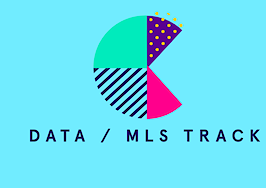Every so often, so frequently it’s become banal, someone inside or outside the real estate industry will predict the death of the multiple listing service (and Inman has covered the question too).
The latest example came from Forbes, in a recent piece titled “Is The MLS Dead? The Threat Of Tech And New Homebuying Habits,” which acknowledges that MLSs encourage competition in the real estate market and offer robust, standardized, reliable data, but also claims MLSs are not relevant to buyers because they have other places to go for listing information and are doing more of the work that agents used to do themselves, and that new technology like big data and artificial intelligence is doing the work of finding buyers outside of the MLS.
Is that accurate? Not if you know how real estate data gets to buyers in the first place and how real estate transactions work in the real world, MLS execs say.
“[T]he piece overlooks a few points: Not entirely, but largely the way listing data makes it onto Zillow, Trulia and Homes.com today is through the MLS. At the option of each broker, most MLSs provide mechanisms for listing data entered into the MLS to be syndicated to these sites. This is just one way that MLS makes the real estate marketplace more efficient,” Tom Phillips, CEO of Bright MLS in the Mid-Atlantic region, told Inman via email.

Tom Phillips
“As said in the piece, real estate is an industry where competitors must cooperate with each other. The MLS facilitates that cooperation – providing a common set of standards and policies so that everyone can communicate clearly and all play by the same rules. Everyone benefits from this efficiency: buyers, sellers, brokers, and agents.”
That common set of standards and policies makes MLS data “the gold star standard of data,” according to Denee Evans, CEO of the Council of MLSs (CMLS) trade group, which counts more than 200 MLSs as members.
“If I go on craigslist I’m thinking that information is about 25 percent accurate. I think that’s a huge benefit [of the MLS] to the consumer and also the agent … all the work that goes into the compliance side,” she said in a phone interview.

Denee Evans
Moreover, the third-party portals that receive MLS data have rules that if another data source about the same listing offers conflicting information, the MLS data “trumps” that source, she noted.
“Because they know that the MLS data is more accurate and timely. That’s what concerned me most [about the Forbes article] — there were half-truths in there. The whole story wasn’t there,” she said.
More to an MLS than consumers know
The MLS executives Inman reached out to observed that consumers don’t necessarily know when they are being served by an MLS.

Rebecca Jensen
“There’s a lot more to what an MLS does than a consumer knows about or sees. The MLS is essentially a business to business product,” Rebecca Jensen, CEO of Midwestern MLS MRED, told Inman in a phone interview.
“Once an agent gets access to an MLS they are able to do analysis on market conditions, we have professional-grade CMA [comparative market analysis] tools … [transaction] forms, transaction management and workflow. There’s a lot more to a real estate transaction than finding a house.”
Merri Jo Cowen, CEO of My Florida Regional MLS, said consumers do spend more time online researching their options before they talk to a real estate professional, but that at some point, that consumer is going to want to list a property for sale or buy a home — and that’s where the MLS shines.
“The MLS is not dead – not on its last legs or soon to be extinct. It’s fair to say that consumers may not think much about the MLS or understand its value – and to be honest, that’s OK. We are the gears that move behind the scenes to help our brokers work with their customers,” Cowen told Inman via email.

Merri Jo Cowen
“Does the consumer realize that the listing information that they see online (MLS-sourced) represents legitimate properties for sale represented by real estate professionals and that it is monitored for accuracy? Probably not. Do they expect that the images and the data they review about a property when doing their online searching is accurate? Of course they do.
“Do sellers want to see their home posted online in as many locations as possible to be seen? We know they do. Do they want the same information to be uniform across the multiple broker websites and consumer portals? We know they do. Do potential buyers want to trust the information they receive in their email or on their customized portal? We know they do.”
‘Alternate universe’
Pocket listings and off-MLS listing platforms seem to be on the rise. The Forbes piece quotes Jack Ryan, CEO of REX Real Estate, a Los Angeles-based brokerage that operates outside the MLS, charges homesellers a 2-percent listing fee, and uses data to find buyers. Ryan, a former investment banker at Goldman Sachs and failed U.S. Senate challenger against Barack Obama, founded REX in 2015 following his own home selling experience.
In the piece, Ryan said, “Agents are doing less and less every single year because most people are doing their search online to find a home. No one’s driving them around Austin, Texas, for eight weekends in a row for three hours a week and showing them homes. They’re doing all the work on their own for nine or 12 months. And they’re happy to do it on their own—they want to.” He said that about 90 percent of homebuying is best left to a computer.

David Charron
“I don’t know what alternate universe this Mr. Ryan works in,” David Charron, chief strategy officer of Bright MLS, told Inman in a phone interview.
“The statement that [buyers] are cruising around on their own and don’t need agents flies in the face of the statistics that we have. [Showing management service] ShowingTime assisted in 50 million showings this past year. There are probably 65 million agent-assisted showings every year, which argues against the statement that consumers don’t need agents.”
Cowen said she’s a fan of the pioneers that are testing out new brokerage models and believes that ultimately consumers will find the brokerage and agent that fits their needs.
“I do not believe that traditional agents simply put listings in the MLS and wait for buyers to come to them – that seems to be more of a ‘rationale’ for the REX model using analytics and targeted advertising,” she said.
The argument that the vast majority of homebuying is best left to a computer may be the case for a small subset of consumers, according to Jensen. WebMD and LegalZoom exist, but most people still take their medical needs to a doctor and their legal needs to a qualified lawyer, she said.
Computers are not adept at dealing with the on-the-ground, emotionally-charged situations that homebuyers find themselves in, such as dealing with the wants and needs of a couple and the couple’s parents who are pitching in for the down payment or coming up with a strong offer in a competitive market where the offer price may not be the top priority; or coming out of pocket to buy a refrigerator for a home in a case where the sellers insist on keeping theirs and the deal is in danger of falling apart, Jensen said.
“The professional buyer’s agents earn every penny of their commission. They really are working weekends and nights and it doesn’t sound like they’re getting credit for everything that they do and that is unfortunate because they offer a consumer a tremendous amount of value,” she said.
To not use MLSs is to limit resources
Brokerages such as REX that don’t use the MLS are choosing not to use a resource that could help them do their jobs: selling homes by connecting buyers and sellers, according to Kenya Burrell-VanWormer, chair of the Houston Association of Realtors, which operates its own MLS.

Kenya Burrell-VanWormer
For instance, MLSs have a feature called “reverse prospecting” that allows listing agents to identify which buyers are looking for the type of listing the agents’ have, she said.
“I just don’t think that [brokerages that work outside of the MLS] are able to give a true representation of what’s available in the market because they don’t have that access. I think they’re limiting their available resources because they’re not part of the MLS. That’s their choice, that’s their business model,” she said.
Phillips added, “Studies [have] shown that broad market exposure through the MLS benefits sellers by commanding the highest prices.”
The Forbes piece criticized MLSs that require Realtor association membership for access, but Jensen noted that MLSs have different business models, just as brokerages do. Many of the largest MLSs — including Bright, MRED and HAR — allow non-Realtors to join. The piece also mis-stated the number of MLSs in the U.S. — there are about 650 MLSs nationwide, according to MLS experts, not “nearly 900.”
Big data and AI
In regards to new technology such as big data and AI, MLSs are not sitting back, CMLS’s Evans said. “They are participating in that innovation to make it easier or more efficient to buy or a sell a home.” MLSs such as MRED, for example, are adding tools like Remine, a big data tool that predicts potential property transactions.
And it’s not as if big data is not intimately connected to the MLS, according to Cowen.
“Let’s not forget that part of that ‘big data’ is data on properties that are for sale and have been sold (MLS) – it’s a valuable piece of the package,” she said.
“Technology will certainly change the way real estate is bought and sold – and that requires not only brokers and agents to be ready to embrace those changes – it requires MLSs to evolve even faster to keep things moving. That need for evolution may ultimately lead to less MLSs that the 600-plus MLSs but it won’t be the death of the MLS.”
When discussions regarding the mortality of the MLS arise, Cowen likes to ask: What if the MLS was gone tomorrow?
“How would the consumer be served with the chaos of trying to get current information, consistent information, valid information?” she said.
“I’ve even heard agents say we’d just put it in Zillow. How would that serve the public – no boundaries, no trust. And, what if there were no more brokers/agents? Who would protect the consumer? Walk them through the process? Build a relationship of trust?
“Sometimes I scratch my head – sure, we can all do better and others are entering the market with new ideas on that, but ‘what if’ works both ways.”













